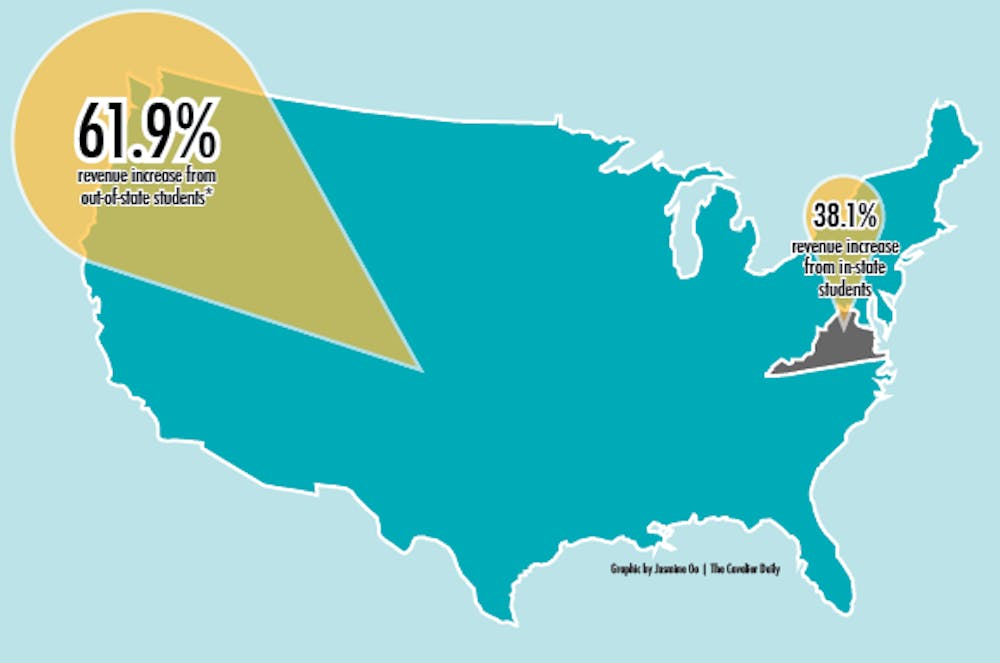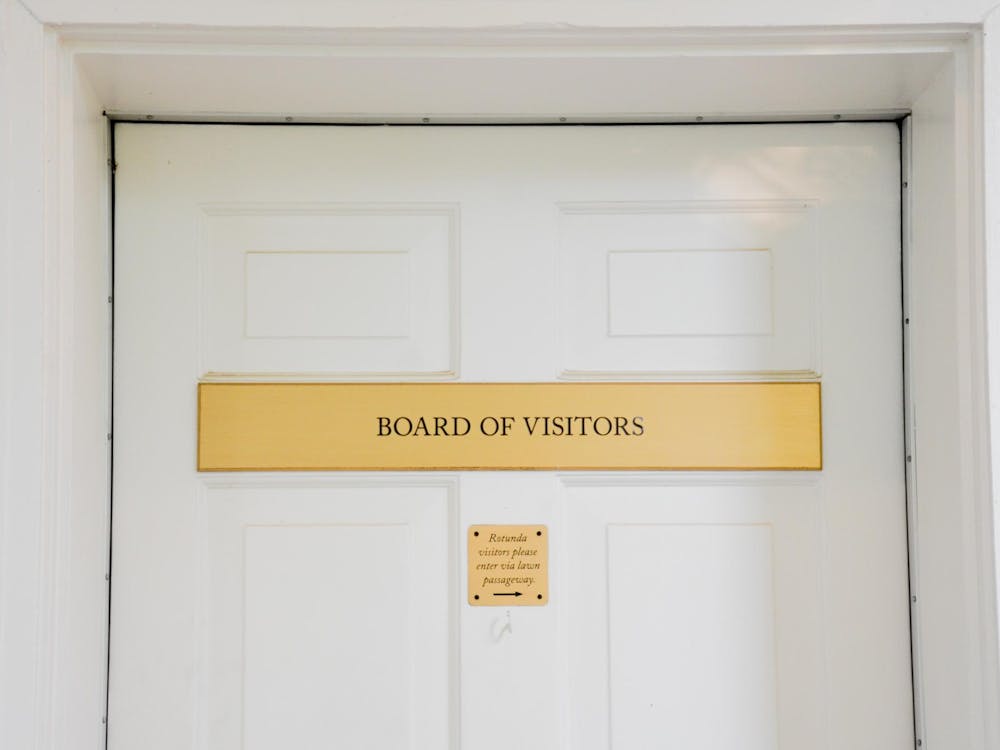University officials and student leaders met Friday to discuss implications of the proposed tuition hike for the 2014-15 academic year. The budget, which puts forth a 4.3 and 5.9 percent increase in overall tuition and fees for in-state and out-of-state undergraduate students, respectively, will be put to vote at this coming Wednesday’s Board of Visitor’s meeting.
The proposed change will increase in-state tuition by $540, to $12,998, and out-of-state tuition by $2,340, to $42,184, excluding the consideration of room and board, dining and other academic costs such as books. When adjusted to include these factors, the change represents a 3.6 percent increase for in-state and a 5 percent increase for out-of-state students.
Mark Hampton, assistant vice president for budget and financial planning in the University budget office, said his office began work on this budget this past summer. Though tuition must be adjusted for increases in inflation, Hampton said much of the increases stem from increasing costs in faculty salaries, staff salaries, health care and retirement plans for faculty and staff, as well as construction projects for the University’s buildings and facilities.
“We are still very vulnerable to the risk of losing the people who make U.Va. a great place to work and study,” Hampton said. “We have to maintain our student to faculty ratio.”
Hampton said despite increases in tuition, the budget office has worked to streamline unnecessary costs for the University.
“We have $11.5 million in targeted savings,” Hampton said.
According to Hampton, $5.5 million of these savings will come from more efficient health care plans, while the other $6 million will come from strategic workforce planning, strategic sourcing and process simplification, the deferment or elimination lower priority expenses and the negotiation savings on procurement contracts.
During the meeting, some students raised concerns about what the tuition hikes will mean for AccessUVa, and how the University plans to manage growing costs, particularly for low-income students.
Colette Sheehy, vice president for management and budget, said though the current plan is to have students without financial needs pay more for this increase through their tuition, the University is looking for alternate solutions.
“We are looking for more private sources to fund AccessUVa,” Sheehy said.
When asked at the meeting why students only had the opportunity to comment on the proposed tuition increases less than a week before the Board of Visitors vote, Hampton and Sheehy said the anticipated increases in cost are not discretionary.
“We are very sensitive to make sure that students are engaged,” Hampton said. “The big cost drivers tend to affect faculty and staff more directly.”
“We typically don’t consult students at the front-end,” Sheehy said.
Hampton said, overall, it costs the University about $100,000 per year to educate an undergraduate student. Student tuition and fees only pay for 32.9 percent of this cost.
“It is actually pretty modest, relatively speaking,” Hampton said.
Sheehy said much of the trouble in minimizing tuition costs comes from the state government’s treatment of higher education funding.
“Unfortunately, higher education is a pretty discretionary part of the state’s budget,” Sheehy said. “We try to promote higher education as an economic engine for the commonwealth.”
Hampton said state funding for higher education has seen a net decrease since 2000.
“It has just gone down, down, down and has had to be made up by tuition increases,” Hampton said.







